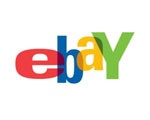 New York — After months of testing, Google Inc., the leader in online search and advertising, is muscling in on video game territory — seems to be serving ads everywhere these days. Its hottest advertising service now targets all those people who waste their workdays playing casual games.
New York — After months of testing, Google Inc., the leader in online search and advertising, is muscling in on video game territory — seems to be serving ads everywhere these days. Its hottest advertising service now targets all those people who waste their workdays playing casual games.
Google on Wednesday is launching in public the beta version of its “AdSense for Games” software, which delivers advertising to Web-based flash games online. The product constitutes the company’s first push into a fast-growing new market — the ability to insert ads into games, either as they are being played or just after they finish.
The move is an expansion of Google’s Adsense program, which matches ads to the content of Web sites. Similarly, Adsense in Games will display, for example, ads aimed at young men in sports and action games. The ads themselves would be videos that players watch before or after a game, or after completing a level.
Google’s beta launch of its latest AdSense for Games program is the search giant’s first attempt into the video games market, and the long-awaited answer to the question of what the company planned to do with AdScape Media, which it bought for $23 million in February 2007.
Christian Oestlien, a Google senior product manager, states the goal for the search advertising giant is to give advertisers another place they can display ads. Oestlien adds that Google has already had a great response from advertisers such as Sprint, Sony Pictures, and eSurance, which have tried out the new system.
“Whether it is a page or a game, we want to make sure we have the ability to deliver against that request,” he says.
According to Oestlien, the program’s beta launch will focus on the placement of a variety of forms of ads in Flash-based casual games and some larger titles. Originally at least, Oestlien said, Google will work with partners like PlayFish, Mochi Media, Demand Media and Konami.
The latter, Oestlien said, would use AdSense for Games to place ads in well-known titles like Frogger and Dance Dance Revolution.
Google will be joining hands directly with Web sites that aggregate Web games and independent game developers looking to make a little money off their creations. Google says brand advertisers will be able to run contextual ads, or put video, flash and image ads within an actual game using Google’s platform.
“It is a huge stamp of approval for a major company to come in and say they believe in the online games ad market,” said Jameson Hsu, chief executive of Mochi Media, a game ad network operator which is partnering with Google. “It should awaken all of the major media companies.”
Google is originally intending the sweet spot for its technology: games based in Adobe’s Flash platform and which runs in a web browser with no download. These are free casual games that are like snacks compared to the full course meals of hardcore console or disk-based PC games.
The Flash market itself is a fast-growing segment, with roughly 200 million games played each month for a total of billions of minutes. It is a good way to reach younger people or those who are hard to reach because they do not watch TV commercials anymore.
Oestlien said Google is also accepting applications from game developers. But to be qualified for the service, developers need to have the majority of their Internet traffic coming from the U.S. and U.K., and their game needs to clock 500,000 games plays or more in one day. Tough standards, but Google says those may change as the product expands and evolves.
Google’s debut into the gaming space has long been anticipated and could be a hedge against slippage in online advertising from the economic downturn. Google bought Adscape Media, a small in-game advertising company, in early 2007, less than a year after Microsoft Corp. bought in-game ad company Massive Inc.
Google’s chief rival, Yahoo Inc., already offers ad-supported, downloadable games. Double Fusion and NeoEdge, two in-game advertising companies, are selling video ads integrated into the games.
“By Google finally entering in the space,” said DoubleFusion CEO Jonathan Epstein, “it confirms for all parties…that this space is of interest to one of the largest media companies in the world. Google does not enter into markets that do not have billion dollar-plus potential for them.”
To Epstein, having Google plant its flag in the in-game ads space shows everyone that games cannot be taken lightly as an ad platform, no matter what other choices advertisers have for their dollars.
“The battleground here is not between us and Massive and Google,” Epstein said. “It is getting games their rightful share of the ad dollars, as opposed to TV, print, and traditional online ads.”
As for Google, it is soundly aware that it will have several significant competitors, but still thinks it can set itself apart.
“It is a very big milestone,” Jameson Hsu he said.


